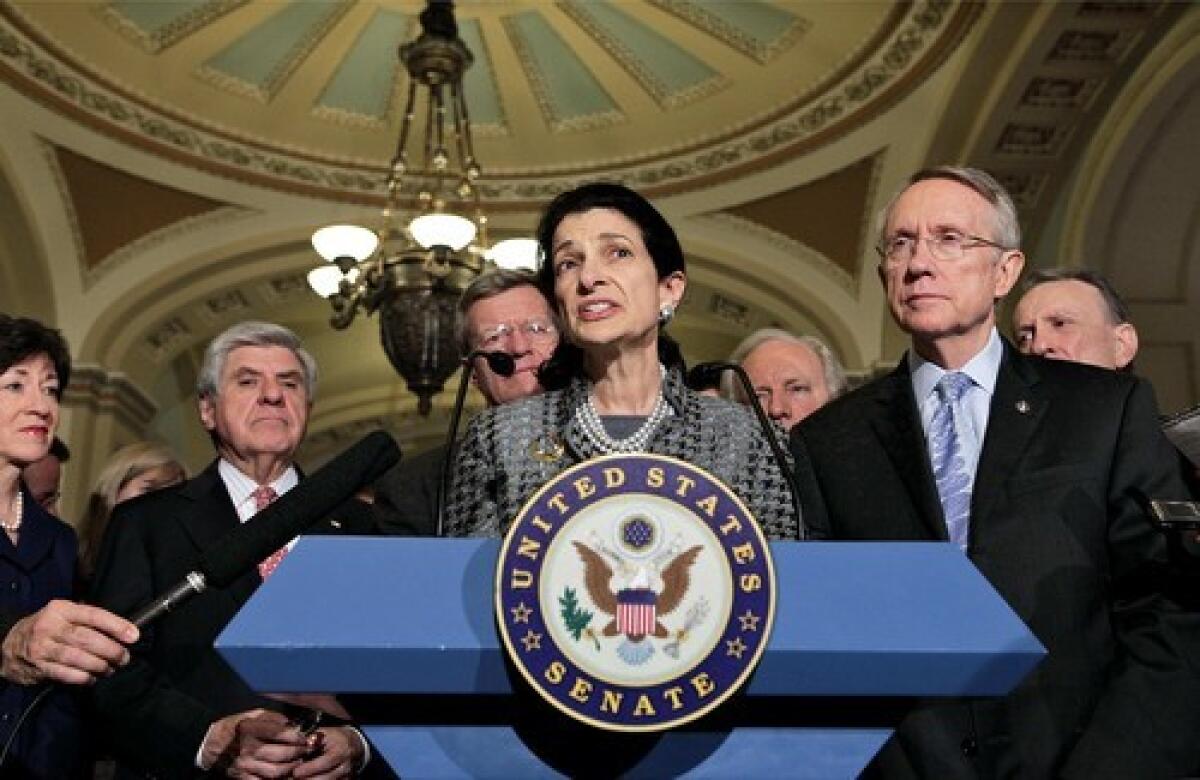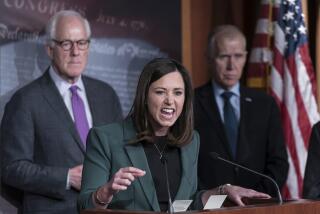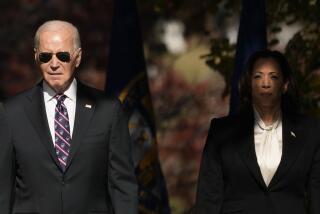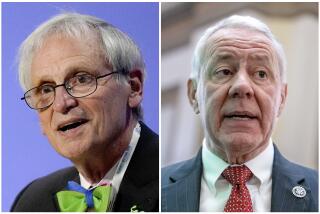The limits of Obama’s bipartisan gestures

President Obama has made at least a down payment on several major campaign promises in his first three months, including a permanent tax cut for the middle class and an overhaul of the healthcare system. But one goal remains stubbornly elusive: ending the deep partisan divide in Washington.
When Obama announced his candidacy in February 2007 in Springfield, Ill., he cited his years in the state capital as a model for the politics he hoped to practice as president. “We learned to disagree without being disagreeable,” he said on that frigid morning.
Once elected, Obama extended an open hand to GOP lawmakers, hosting them at the White House, visiting them on Capitol Hill -- paying more heed, some said, than their fellow Republican George W. Bush ever did.
But when it came time to vote, only three Republicans backed Obama’s economic stimulus plan. None voted for his $3.5-trillion budget. “They decided they’d rather draw some sharp lines in the dust than work with Democrats,” said political analyst Norman Ornstein.
For all of Obama’s high-flown rhetoric -- the promise of Democratic blue and Republican red bleeding into a peaceable purple -- it was implausible to think Washington would change overnight. After all, it has taken decades for the nation’s capital to divide into the functional equivalent of armed camps.
The political center, where many Southern Democrats and Northeastern (or Rockefeller) Republicans once resided, has all but disappeared, leaving fewer lawmakers willing to meet in the middle. One of the handful, Sen. Olympia J. Snowe of Maine, sees Congress increasingly dominated by members pushing an ideological agenda, not working to solve problems.
“Fewer and fewer people have broad experience legislating and doing the hard work of compromise,” said Snowe, who cast one of the three GOP votes for Obama’s stimulus plan.
The culture of Washington has also changed. Gone is the routine in which powerful lawmakers haggle by day, then enjoy dinner or drinks at night. At the close of business, many head to fundraisers to pay for their increasingly costly reelection campaigns, or dash to the airport for a flight home. (Or duck into a studio to take part in the political food fight featured nightly on cable TV.)
The lack of social interaction makes it easier to demonize the opposition, a strategy promoted by former Republican House Speaker Newt Gingrich. Political foes are no longer adversaries but “enemies, someone you want to crush and make disappear from the face of the Earth,” said Ornstein, a longtime student of Washington at the American Enterprise Institute.
Democrats must shoulder their share of the blame.
For all the talk of bipartisanship, GOP lawmakers were largely excluded from the drafting of the president’s economic stimulus bill. While Obama floats above the fray, his top lieutenants have sniped at former Vice President Dick Cheney and stoked a fight with talk radio’s Rush Limbaugh.
But the biggest impediment to change may be the most fundamental: Lawmakers come to Washington pledging to represent certain interests and holding a certain set of values and beliefs. Those don’t change, no matter who sits in the White House.
“The cocktail parties and all the interaction -- that’s flattering,” said Rep. Jason Altmire, a Pennsylvania Democrat who has attended one of the president’s bipartisan mixers. “But in the end, members vote their district and their own personal politics and agendas.”
Obama has scored a bit of bipartisan success, winning enough GOP support to pass major environmental legislation and bills to expand children’s healthcare and release more financial bailout funds.
But widespread peace and harmony aren’t likely to break out in Washington any time soon.
Lawmakers returned to Capitol Hill on Monday after a two-week recess. Before they left town, congressional leaders handed out separate talking points -- one for Democrats, one for Republicans -- explaining to folks back home the problem with the other party.
Janet Hook in the Washington bureau contributed to this report.
More to Read
Start your day right
Sign up for Essential California for news, features and recommendations from the L.A. Times and beyond in your inbox six days a week.
You may occasionally receive promotional content from the Los Angeles Times.







